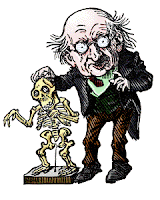Michaelangelo's Creation of Man from Sistine Chapel
Lewis Lavoies' "One Blood, Many Nations" mural of Adam at the United Nations
The Sunday of Pentecost and the Tower of Babel:
Today's lectionary study comes from two passages, one from Genesis recounting the story of the Tower of Babel and the other from the book of Acts giving the account of Pentecost. These lessons bring forth a great deal of possibilities regarding our expression in both language and image regarding who we are and who God is in our lives.
For the expression of image, as we look at Levoies' art, we will discuss the phrase "imagio dei" (image of God) and what that means in our present day world. How does this affect our mission to others?
For language, what does it mean to speak with the same tongue? What does it mean to appreciate diversity of language and people? How has language shaped our belief? How can we communicate with a world so multilingual?
Our readings are below:
The Tower of Babel: Genesis 11:1-9
11:1 Now the whole earth had one language and the same words.
11:2 And as they migrated from the east, they came upon a plain in the land of Shinar and settled there.
11:3 And they said to one another, "Come, let us make bricks, and burn them thoroughly." And they had brick for stone, and bitumen for mortar.
11:4 Then they said, "Come, let us build ourselves a city, and a tower with its top in the heavens, and let us make a name for ourselves; otherwise we shall be scattered abroad upon the face of the whole earth."
11:5 The LORD came down to see the city and the tower, which mortals had built.
11:6 And the LORD said, "Look, they are one people, and they have all one language; and this is only the beginning of what they will do; nothing that they propose to do will now be impossible for them.
11:7 Come, let us go down, and confuse their language there, so that they will not understand one another's speech."
11:8 So the LORD scattered them abroad from there over the face of all the earth, and they left off building the city.
11:9 Therefore it was called Babel, because there the LORD confused the language of all the earth; and from there the LORD scattered them abroad over the face of all the earth.
Pentecost: Acts 2:1-21
2:1 When the day of Pentecost had come, they were all together in one place.
2:2 And suddenly from heaven there came a sound like the rush of a violent wind, and it filled the entire house where they were sitting.
2:3 Divided tongues, as of fire, appeared among them, and a tongue rested on each of them.
2:4 All of them were filled with the Holy Spirit and began to speak in other languages, as the Spirit gave them ability.
2:5 Now there were devout Jews from every nation under heaven living in Jerusalem.
2:6 And at this sound the crowd gathered and was bewildered, because each one heard them speaking in the native language of each.
2:7 Amazed and astonished, they asked, "Are not all these who are speaking Galileans?
2:8 And how is it that we hear, each of us, in our own native language?
2:9 Parthians, Medes, Elamites, and residents of Mesopotamia, Judea and Cappadocia, Pontus and Asia,
2:10 Phrygia and Pamphylia, Egypt and the parts of Libya belonging to Cyrene, and visitors from Rome, both Jews and proselytes,
2:11 Cretans and Arabs--in our own languages we hear them speaking about God's deeds of power."
2:12 All were amazed and perplexed, saying to one another, "What does this mean?"
2:13 But others sneered and said, "They are filled with new wine."
2:14 But Peter, standing with the eleven, raised his voice and addressed them, "Men of Judea and all who live in Jerusalem, let this be known to you, and listen to what I say.
2:15 Indeed, these are not drunk, as you suppose, for it is only nine o'clock in the morning.
2:16 No, this is what was spoken through the prophet Joel:
2:17 'In the last days it will be, God declares, that I will pour out my Spirit upon all flesh, and your sons and your daughters shall prophesy, and your young men shall see visions, and your old men shall dream dreams.
2:18 Even upon my slaves, both men and women, in those days I will pour out my Spirit; and they shall prophesy.
2:19 And I will show portents in the heaven above and signs on the earth below, blood, and fire, and smoky mist.
2:20 The sun shall be turned to darkness and the moon to blood, before the coming of the Lord's great and glorious day.
2:21 Then everyone who calls on the name of the Lord shall be saved.'
| 






